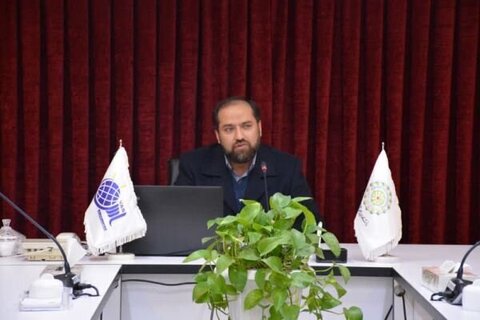Hawzah News Agency- Seyyed Mohsen Al-e-Batool, a graduate of the seminary and an official at the Hamburg Islamic Center, said on Monday, February 19 during a speech at this academic meeting,” Considering my ten-year history of being in Germany and the Hamburg Islamic Center and the valuable work we have done, the question we had was, what is the benefit of our presence for the German society and the followers of different religions there? In the traditional societies of the past, the functions of religion were far too many, so that in various fields including political, economic and cultural aspects the society demanded religion and religion was present in all these fields, for this reason, economy and politics were based on religion, as It was a necessity, but in modern societies, this function of religion has been reduced to the level of an institution along with other institutions.”
He went on to say, "The question that came up for me was, can we say that in Western societies, especially in Germany, the functions of religious and multicultural institutions are weaker than those in Islamic countries? I sought to find the answer to this question by referring to experts in religious culture in the city of Hamburg and conducting numerous interviews. Germany is the second most populous country in Europe with 82 million people. Twenty percent of the German population is not native; Of these, more than six million are Shia and Sunni Muslims. The important point in the German Federal Statistical Office is that five percent of Muslims are under twenty-five years old. Most importantly, thirty-five percent of all German under-fives are Muslims. This shows that such a society is moving towards Islam.”
Al-e-Batool continued,” Christian Wolff, the former president of Germany, says that today Islam is a part of Germany; With the increase in the number of Muslims, today the number of mosques and centers operating in the name of Islam has reached 2700, of which 300 belong to Shiites. Since 1910, Muslims entered Hamburg because it is a very important port in Germany and the highway for exporting goods from Asia to Germany. Over time, in the 60s, Muslim businessmen and religious people decided to build an Islamic center in Hamburg. In Iran, the Late Grand Ayatollah Boroujerdi also supported this call. These people were concerned about their children's religion and upbringing, so they bought the land of the Hamburg Mosque and started its construction in the sixties.”
He said,” Another function of these mosques is to receive tourists because every year thousands of tourists want to get acquainted with Islamic culture and Muslim customs. This presence reflects very well and greatly reduces negative attitudes towards Muslims. Another function for these mosques is to welcome the presence of German students. In the state of Hamburg, Islam is the official religion, which means that Muslims have more citizenship rights than in other states. Most importantly, they have set a two-unit course to introduce students to Islam; Therefore, teachers take their students to mosques to teach them lessons. Another point is that Muslims state that schools should be off on Eid al-Fitr and Eid al-Adha, so state laws have agreed to such holidays. Also, mosques are a center for young people, so they have many programs for them, such as camps and various classes.”

